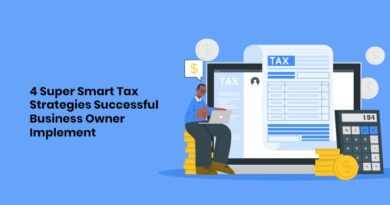Futures Vs Forex – Which One Should You Choose?
Financial trading has a lot of terminologies that can be confusing for traders. However, understanding these terminologies is important for them to comprehend how financial instruments work and how can they trade lucratively. The terms futures and forex are the most heard ones in financial markets and are often used interchangeably although they hold different meanings. If you are one of them and are wondering futures vs forex, this article will help you.
Foreign Exchange (Forex)
If you have travelled abroad and have bought goods in a foreign country, you would be aware of foreign currencies and their changing values. The differences in exchange rates are the reason why the forex market was born. Forex market lets the traders speculate on the possibility of increasing currency values or protect against the possible decreasing value of a currency.
Forex trading has existed for centuries but after the U.S. President Richard Nixon gave incentive to the development of further active forex trading worldwide when he took the U.S.A off the gold standard. It was this action that encouraged several countries to float their currencies against the U.S.A. dollar.
Foreign exchange trading received a further boost in the 1990s when retail or individual forex traders entered the market on a fairly large scale through opportunities provided by internet-based trading and brokerage.
How Is Forex Trading Done?
When someone wanted to sell and buy currencies in the past, they had to go to a major international bank or a currency exchange operator. But now traders can easily open a forex trading account through the brokerage of full-service brokerage.
Currencies are traded in pairs, which means that if you are buying one currency, you will be simultaneously selling another. Traders can sell and buy pairs from countries across the world, and the pairs do not need to have the currency in which the traders’ main forex account is denominated. For example, someone holding an account in GBP (British pounds) could buy USD (American dollars) while simultaneously selling EUR (euros).
Some currencies are considered as majors since they are more commonly traded and offer liquid trading. Other currencies called minors or exotics, and many of them can be traded against each other by employing cross pairing with majors.
Retail forex trading is lightly regulated. Parties here trade directly with one another or through brokers. Some brokers allow trades in tiny sizes like nano lots on hundred currency units, or micro-lots of 1,000 currency units.
Futures
Forex is recognised to be an individual class of assets, which can be sold and bought directly, like commodities, equities, and bonds. However, futures are derivative trading instruments, which means that their value depends on the value of another or underlying asset.
Futures are traded through contracts like other derivative investments. And as their name suggests, they are those contracts whose price is calculated on the basis of an estimated future value of another or underlying asset. Futures are normally sold and bought on organised exchanges, unlike forex.
Futures first unfolded form trading in commodity markets in the 19th century. It was when farmers sought to secure a future sale price for their produce. They can now be exchanged for multiple different types of assets like bonds, commodities, currencies, and equities.
How Do Futures Work?
Futures for any type of asset are sold and bought by contract. The contracts are only valid for a specific period and come with an expiration date. One party in the contract settles to buy a specific amount of given asset and accept delivery of it on a pre-defined date, and the other party complies to sell the asset at the agreed-upon price on the decided date.
Future contracts are usually scheduled to expire four or more times in a year. After the first purchase, the contracts can be sold and bought on the secondary market.
Hedgers frequently seek futures contracts as they are guaranteed that they will receive the price for an asset at a future date. Speculators are the counterparties to the contracts, and they hope to purchase for a price lower than that mentioned in the contract at a given date.
Traditionally, when futures were sold and bought, the seller consented to make delivery, and the buyer agreed to accept delivery, of the underlying asset after the contract expired. However, nowadays most futures deals include cash settlements after expiration except for rare physical deliveries on a few commodities-related contracts.
Forex Futures
As with different types of underlying assets, you can trade forex using futures. Forex futures work on the same principle as other types of futures. In this trading, the parties to the deal enter a contract to trade currency with another for a specified price on a pre-established date set in the future. Their prices are determined by considering the carrying costs for the purchase and borrowing of the target currency over the contract’s life along with the possible investment collections of the base currency.
Forex futures contract sizes depend on the value of the currency. Minis or the smallest forex futures have the smallest sizes of more than sixty thousand currency units, and futures traders may have to keep a margin deposit of $1,500 or more to begin trading,
Futures VS Forex
Investing in the futures market is very similar to buying in the stock market, except that your trade will purchase a right to sell or buy specific commodities or stocks at certain prices. In forex, a trader chooses two particular currencies and attempts to earn profits on the basis of swapping those currencies at opportune times.
Before we jump into futures vs forex, let us take a look at their differences.
24-hour marketplace
In futures vs forex, forex is a clear winner here. It is because currency traders have twenty-four hours access to a network of other forex traders who can support currency swaps from Monday to Friday. No matter where the trader is in the world during the five working days, they will find access to the 24-hour marketplace which provides uninterrupted access to trading and a fairly easy ability to act quickly to global market indicators.
This contrasts starkly with the futures market that relies on the closing and opening bells of the stock exchange to bookend the day of trading. If important news arrives from Europe, Japan, or anywhere in the world while the market in the U.S.A. is closed, the following morning may declare market volatility for future traders.
In contrast, the traders in the forex market can react immediately to any important global event
that may cause a change in currency value.
Liquidity
There is no denying that the forex market is the more liquid and the largest marketplace in the world. More than $5.3 trillion is traded every day by those traders who are looking to earn profits on currency swaps. Forex is also capable of trading massive and voluminous transaction sizes with ease. Although the size of the market is not always an indicator of its profitability, the futures market does not possess the potential to compete with or beat Forex when it comes to liquidity. So, here also, forex wins in futures vs forex.
Commission Structure
The forex market does not operate in a centralised or specifically regulated marketplace. This implies that the Forex traders do not need the services of a broker who will ask for a commission in exchange for their services.
When trading in futures, fees including commissions are simply a part of the process and need to consider before crafting a financial plan on the basis of your investments. Trading firms and brokerages that facilitate and support forex trades yield their money in multiple ways, with low premiums on the currency assessment being the cost that closely aligns with the commission of a traditional broker.
Thus, choosing forex in futures vs forex will cost lesser.
Minimal Risk
While risk is an unavoidable part of any investment opportunity, the course of investing in currencies via a reputed trading firm provides some risk protection in the form of position limits. A position limit means a number that is set relative to the amount of money in the account of the trader. Trading platforms that exist online will automatically form a margin call if the already determined margin crosses the amount of trading money within the related account, so they minimise losses and protect your investment. While investing in futures, the trader may be liable for considerable deficits if the position is dissolved as a loss that is greater than what you had in your trading account.
Therefore, in futures vs forex, trading in forex involves lesser risk.
Leverage
Though the concept of leverage is both a bad thing and a good thing, having access to greater leverage positing may enable you to earn massive profits with minimal upfront investment. Forex traders usually allow up to 500 to 1 leverage ratio, although most new traders are advised to start
with a lower ratio to guard against the potential for losses.
The Verdict
It is difficult to conclude which one is better – futures vs forex. If you are someone who enjoys engaging in an investment that rewards market awareness, continual learning, and quick thinking, then you must choose to trade in forex.
However, if you are someone to whom purchase and hold scheme sounds more appealing to your investment style, you should opt to invest in futures.
You must consider your appetite for profitability, level of risk, the manner in which you want to involved in your investments, and how much fees you are willing to pay for your investment before considering which option to choose from.




